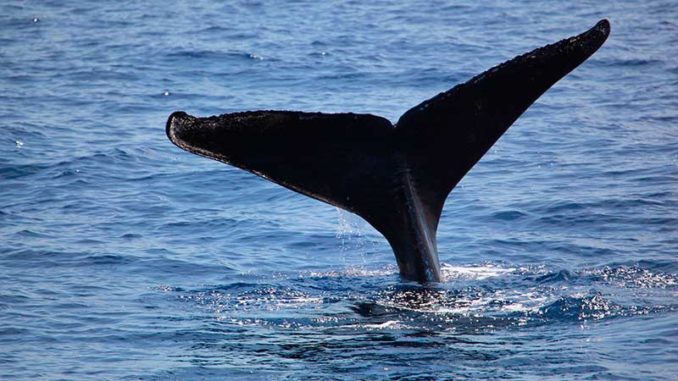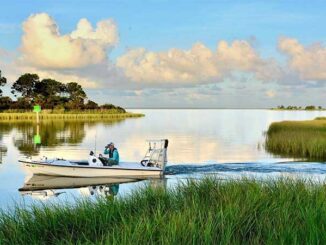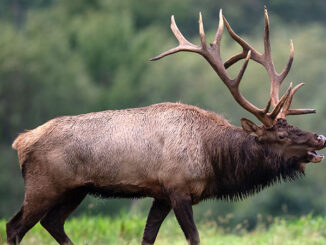
Ever run into a whale?
No, not the kind of “run into” you have with a friend in the supermarket, which always leads into an aisle-blocking conversation, but “run into” as in “boom, bam, oh-hell-what-was-that “run into.”
Don’t know how many hours I’ve spent in the briny deep off Louisiana’s coast during the last 50 years. It’s not as many as some and more than others.
But I’ve never seen a whale in the Gulf of Mexico.
I know some who have — all accounts testify these aquatic mammalian encounters are sperm whales — and I sure do wish I could’ve been along on any or all of these trips. And, thank the Holy Saints these were not the Moby Dick kind. For this matter, neither did any of the fishing boats have a Captain Ahab.
Know what? Not any of the boats describing the thrill of spotting a whale in the Gulf of Mexico ever said they had “run into” any of these whales. Not one. No damage. Just excitement, the pure joy of being a witness to one of God’s largest creatures living on Planet Earth.
The rest of the story
Aha, you’ve guessed it, there’s a Paul Harvey “now, for the rest of the story” to follow.
Seems there are folks who lay awake at night worrying that you will “run into” a whale in the Gulf of Mexico, and they want the federal fisheries folks in the National Oceanographic and Atmospheric Administration to do something about it (No wonder this is shortened to NOAA, pronounced like the biblical “Noah”).
In a not so tersely worded announcement, NOAA Fisheries “…is requesting comments on a petition for rulemaking to establish a year-round 10-knot vessel speed limit in the Gulf of Mexico and other vessel-related mitigation measures in an area referred to as core habitat by the petitioners.”
To protect Rice’s whales!
Ok, so I’ve heard of sperm whales, humpback whales, right whales, blue whales, killer whales (is an orca a whale?), beluga whales, sei whales, fin whales, bowhead whales, gray whales — but never Rice’s whales.
Deep divers
So, I look it up and Rice’s whales live in 100-400 meter depths in the northeastern Gulf of Mexico, are a baleen whale (you can look this up because the explanation is too long), and the estimate is there are fewer than 100 swimming on Planet Earth.
That said, Rice’s whales are a protected species. The Marine Mammal Protection Act does that for animals on the Endangered Species Act list.
Now, just last month, “Noah” Fisheries is forced to move on a petition filed by the Natural Resources Defense Council, Healthy Gulf, Center for Biological Diversity, Defenders of Wildlife, Earthjustice and New England Aquarium calling for a “vessel slowdown zone.” That name says a lot, doesn’t it?
The idea here is to require an every-day, daylight 10-knot speed restriction with no “vessel transits” at night in waters 100-400 meters deep from near Pensacola, Florida to south of Tampa, Florida “…to protect Rice’s whales from collisions with vessels and noise pollution.”
These are the same groups that filed the same petition to protect whales along the East Coast. OK, so this doesn’t involve Louisiana waters, and, being fair, the folks involved in these organizations probably do lose sleep nightly worrying about Rice’s whales.
But their ideas are wacky. There’s more. These folks want all boats in this zone to report their travel plans, use visual observers and maintain a distance of 500 meters (we use yards in the U.S.) from Rice’s whales, among other requirements.
To make public comment (no emails) on the “Noah” website: https://www.regulations.gov/document/NOAA-NMFS-2023-0027-0001, click the “comment” icon, then complete the required fields and attach comments.
You can submit written comments to: Assistant Regional Administrator, Protected Resources Division, National Marine Fisheries Service, Southeast Regional Office, 263 13th Avenue South, St. Petersburg, FL 33701. The Federal Register Name/Number: 88 FR 20846, published April 7, 2023.
Method to the madness
There’s a method to this written madness. And a hope this wasn’t so boring that you put the Sportsman in the recycle bin.
The aforementioned and very worried folks who want to limit vessel speed are in the same groups calling for wind “farms” in the Gulf of Mexico — yes, there’s a windmill coming to your favorite deep-water fishing spot.
They are the same folks who pushed the Obama administration to remove oil and gas platforms from the Gulf of Mexico — the Idle Iron Plan — the platforms “reefs” that held a variety of fish species and produced excellent fishing off Louisiana’s shores. These folks reel in fear every time a company drills for oil in the gulf.
What’s more, those folks who love birds decry the use of wind farms because, so they say, those giant blades kill millions of birds annually, and with the annual migration of neotropical birds using Louisiana as a northern terminal, it’s a wonder why these Rice’s whales worriers turn a blind eye to the problems wind farms create for other animals.
And, what’s going to happen when working “vessels” in the northeastern gulf set out to establish those highly desirous wind farms off the Florida coast — 10 knots, huh!
The concern here is what’s next. If there had been documented boating accidents involving Rice’s whales in the past, well, maybe, there’s reason for all this hubbub. Whales are smart enough to know what’s coming. If there was a boat striking a humpback along the Pacific Coast, you’re darned sure you would have heard about it on the national “this just in” news.
Document the first incident involving a Rice’s whale, and us old timers might fall in line with those concerns. Until then, don’t waste the time it took to publish the 1,216 words it took NOAA to inform us about a “vessel slowdown zone.”
Folks, we’ve got to start speaking up against insanity like this. Just laughing at the insanity and hoping they’ll go away just won’t work.

